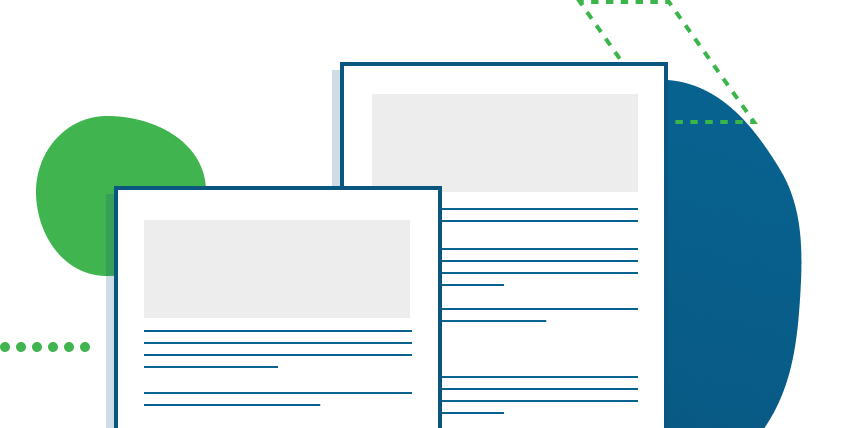Milan, 09/13/2023 — Among the top five Italian banks by funding, Intesa Sanpaolo is the one that has communicated most often on AI issues in the last 3 years, followed by UniCredit, Banco BPM, BPER Banca and MPS. In many cases, the areas of application are programmatic, with initial experiments underway. Meanwhile, time is running out and in December the community AI Act will be published in the European Journal, which regulates the use of AI, which banks will also have to adapt to. This is what emerges from research by Excellence Consulting which, with the help of Dataskills, an Excellence Group company specialized in data science and analytics, analyzed 2,000 publications and approximately 10,000 articles published from July 2020 to 30 June 2023 in the first generalist newspaper for copies sold and in the largest business newspaper in Italy using keywords related to Artificial Intelligence in general and specifically in banking.
The analysis was carried out using webscraping tools and Natural Language Processing solutions. The quantitative research is complemented by qualitative research carried out through desk analysis on press releases, financial statements, business plans and top management statements. In the scope of articles surveyed (480 with mentions of Artificial Intelligence in banking), 23% (112) refer to the top five Italian banks, of which 15% to Intesa Sanpaolo. Compared to the total number of mentions of the banks, those linked to AI are limited: 2.4% is the weight of Intesa Sanpaolo articles dealing with AI compared to the total mentions of the bank in the period considered (76 articles out of 3,139), 0.9% for Unicredit (25 articles out of 2,729), 0.5% for BPER (5 articles out of 1,032), 0.3% for BPM (4 articles out of 1,281) and MPS (2 articles out of 750). After the last 3 years in which ESG was a great element of news (83 articles per quarter on average), the launch of ChatGPT was enough to bring the relevance of AI to the levels of that of the ESG theme (73 articles related to AI in banking in Q2-2023 vs 71 for ESG in banking). The analysis finds that the topics most associated with AI are Customer Experience (61 articles), Cybersecurity (55 articles), Credit Scoring (31 articles), Procurement (30 articles) and Chatbot (30 articles). In the period (Q3-2020 – Q2-2023) the same topics show a constant trend, with the exception of the Chatbot theme which emerged strongly starting from Q2-2023 (ChatGPT launch in Italy) going from an average of 1.5 articles per quarter through Q1 2023 to 13 citations in Q2-2023.
Banks are expanding the scope of application of AI Innovation. Those investigated in qualitative research are the evolution of the service model (evolution of the Customer Experience and optimization of commercial campaigns), the evolution of the offer (study and development of the bank’s offer, optimization of internal processes) the optimization of internal processes and governance and risk management. Specifically, Intesa Sanpaolo appears to apply AI solutions in all the areas investigated, Unicredit and BPM in 3 out of 4, although UniCredit in Italy only 2 out of 4, BPER only in 1 while Monte dei Paschi di Siena makes no reference to the use of ‘AI within the ongoing industrial plan. Meanwhile, the proposed regulation that will regulate the use of Artificial Intelligence at a European level (AI ACT) was approved in the EU Parliamentary Commission in May 2023 and approved by the European Parliament on 14 June 2023. Publication in the European Journal is scheduled for December 2023. The entry into force of the regulation will require banks to adapt their processes to be able to continue adopting AI solutions. The topic of AI ACT remained marginal in the media analyzed (1.6 articles on average from Q3-2020 to Q1-2023) until Q2-2023 when, following approval in the European Parliament, 31 articles were recorded in just three months (Q2 2023). The topic receives particular attention in the banking sector: a third of the publications relating to the AI ACT (10 out of 31) are in fact related to the world of banking, and 14% of the articles relating to AI in banking in Q2-2023 (73) are related to the AI ACT (10) (vs. 0.2% average incidence in previous quarters).
“From the textual analysis of the articles dealing with Artificial Intelligence – explains Maurizio Primanni, CEO of Excellence Consulting – it emerges clearly that this will establish itself in the future as one of the macrotrends of evolution of business models in the financial world, on a par with what has been the case in recent years. 5 years of digital transformation and more recently the ESG transition. The words most associated with AI are generally ‘research’, ‘development’ and ‘technology’, among those present in the articles dealing with Artificial Intelligence in banking, ‘digital’, ‘growth’ and ‘services’ also emerge which suggest the key to understanding the topic with which banks treat it, namely AI as a tool to relaunch growth or develop new services. The topic of AI is becoming as pervasive as that of ESG, although in both areas I believe we are only at the beginning of a path that will interest us for many years to come. There are certainly widespread cutting-edge experiences, I am thinking of the new CentAI laboratory and the launch of Intesa Sanpaolo’s Isybank, or Banca Sella’s Artificial Intelligence Business Incubator, but it is necessary to act in an organic and widespread way on the critical success factors: from culture corporate to governance, from skills to data quality control, up to the management of innovation models and compliance management. On this last aspect, through the upcoming launch of the AI Act, the European legislator proves to be an excellent anticipator of market developments and business models. By following the requirements of the AI Act, in fact, Banks will be able to create the framework to then carry out any type of evolution of their business model that involves Artificial Intelligence”.
